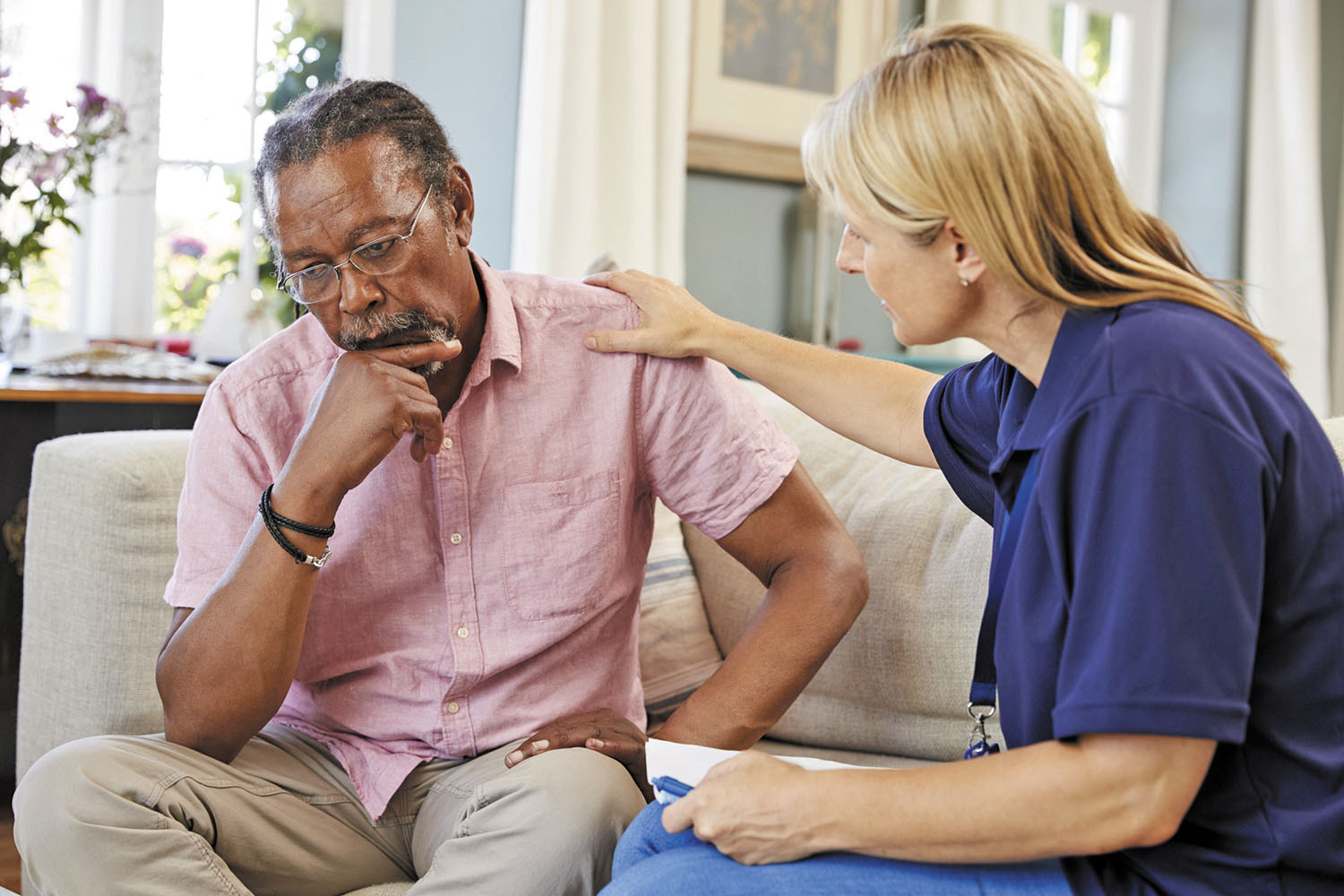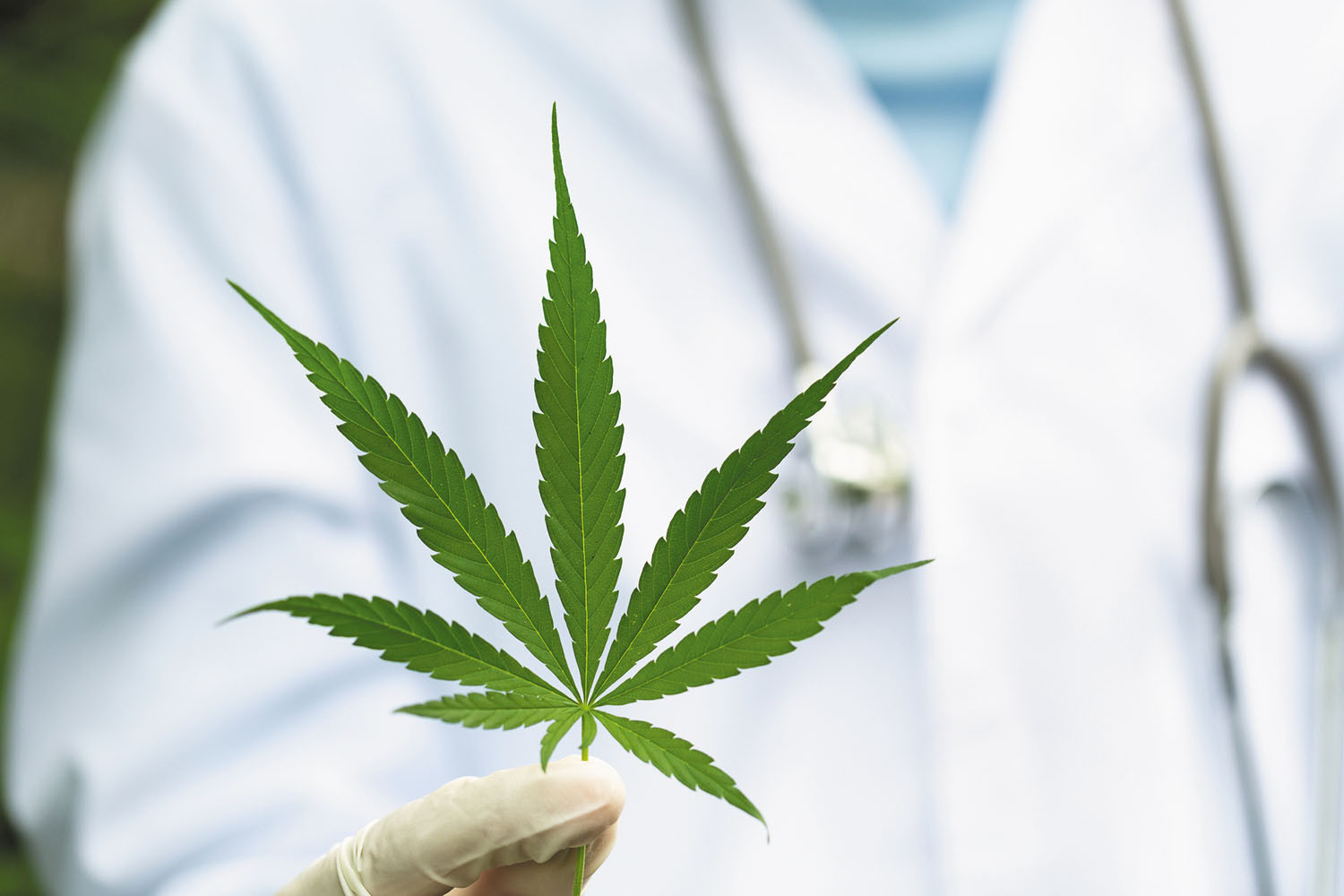
Trying to lose weight? Be careful not to lose muscle

Is your skin problem actually an autoimmune condition?

People with diabetes face higher risk of hearing loss

Antibiotic-free fixes for recurrent UTIs

Musculoskeletal syndrome of menopause: When menopause makes you ache all over

When can older women stop getting mammograms?

To lose weight, especially harmful belly fat, combine diet and exercise

Can men hold off on treating recurring prostate cancer?

The 7 types of rest and why we need them all

What are the early warning signs of cervical cancer?
Depression Archive
Articles
Back to the future: Psychedelic drugs in psychiatry
Treating sleep apnea: Good for your heart and mind?
Could COVID-19 infection be responsible for your depressed mood or anxiety?
Focusing on past successes can help you make better decisions
In the journals
People with anxiety or depression often have trouble making sound decisions. But a study suggests their judgment can improve if they focus on past successes instead of mistakes. The findings were published online Dec. 22, 2020, by the journal eLife.
Researchers recruited 86 adults, divided into three groups. In one group were people diagnosed with generalized anxiety disorder or major depression. Another group consisted of people who showed anxiety or depression symptoms, like excessive worrying and not feeling good about the future, but were not clinically diagnosed. The final group included those without anxiety or depression.
Depression and heart disease: A double-edged sword?
Lifestyle changes — along with other proven therapies — can help improve these often-overlapping conditions.
Everyone goes through periods of feeling gloomy, irritable, or listless at least once in a while. And these emotions are perfectly normal after a diagnosis of a serious health problem such as heart disease. But if those unpleasant feelings drag on for weeks and gradually erase your sense of well-being, you may have depression.
Over a lifetime, about one in five Americans is affected by depression. But the risk of depression in people who've had a heart attack is three times as high as the risk among the general population.
Is it dementia or something else?
Many cases of memory loss aren't related to dementia, but stem from other, treatable conditions.
You've been forgetting things lately — your keys, or maybe names. Sometimes you struggle to find the right word in conversations or repeat yourself to others. You may worry: are these signs of dementia?
If this sounds like you, you're not alone. Many people find their way into Dr. Tammy Hshieh's office wondering the same thing. But most of the time, it's not dementia causing their problems, says Dr. Hshieh, a geriatrician at Harvard-affiliated Brigham and Women's Hospital and Dana-Farber Cancer Institute and assistant professor of medicine at Harvard Medical School.
Sour mood getting you down? Get back to nature
Research suggests that mood disorders can be lifted by spending more time outdoors.
Image: © Sidekick/Getty Images
Looking for a simple way to help reduce stress, anxiety, and depression, and maybe even improve your memory? Take a walk in the woods.
"Many men are at higher risk for mood disorders as they age, from dealing with sudden life changes like health issues, the loss of loved ones, and even the new world of retirement," says Dr. Jason Strauss, director of geriatric psychiatry at Harvard-affiliated Cambridge Health Alliance. "They may not want to turn to medication or therapy for help, and for many, interacting with nature is one of the best self-improvement tools they can use."
The highs and lows of medical cannabis
It's more accessible than ever before, but is it the right medicine for you?
Medical marijuana — also referred to as medical cannabis — has enjoyed a boom in recent years. More states have legalized it, more products are available, and more people have turned to it for help, especially older adults.
A study in the April 2020 JAMA Internal Medicine found that the number of adults ages 65 and older using medical cannabis increased from 2.4% to 4.2% between 2015 and 2018.
How to overcome grief’s health-damaging effects
The deaths of friends and family members become more common as you age. Here is how to endure the grieving process.
Image: © kali9/Getty Images
Most men don't face much personal loss early in their lives. Yet, once they reach a certain age, they will encounter the experience of losing someone important to them — a spouse, a friend, a relative — and the feelings of grief that often follow.
"Grief is a natural response to loss, but it is something that men are not prepared for, and they often struggle to understand how it can affect their lives," says Dr. Eric Bui, associate director for research at the Center for Anxiety and Traumatic Stress Disorders and Complicated Grief Program at Harvard-affiliated Massachusetts General Hospital.
Food and mood: Is there a connection?
Here's what the research says about diet and depression.
Image: © ogichobanov; © Foxys_forest_manufacture/Getty Images
If you've ever found yourself in front of the TV after a bad day, mindlessly digging ice cream out of the container with a spoon, you know that mood and food are sometimes linked. But while stress eating is a verified phenomenon, the relationship between food and actual mood disorders, such as depression, is less clear. Or, to put it another way: can the things you eat influence your risk for depression — and can dietary changes potentially improve your mental health?
"The research regarding dietary factors and depression is still inconclusive," says Patricia Chocano-Bedoya, a visiting scientist in the Department of Nutrition at the Harvard T.H. Chan School of Public Health. But there have been hints that food may play a role in depression.

Trying to lose weight? Be careful not to lose muscle

Is your skin problem actually an autoimmune condition?

People with diabetes face higher risk of hearing loss

Antibiotic-free fixes for recurrent UTIs

Musculoskeletal syndrome of menopause: When menopause makes you ache all over

When can older women stop getting mammograms?

To lose weight, especially harmful belly fat, combine diet and exercise

Can men hold off on treating recurring prostate cancer?

The 7 types of rest and why we need them all

What are the early warning signs of cervical cancer?
Free Healthbeat Signup
Get the latest in health news delivered to your inbox!
Sign Up











